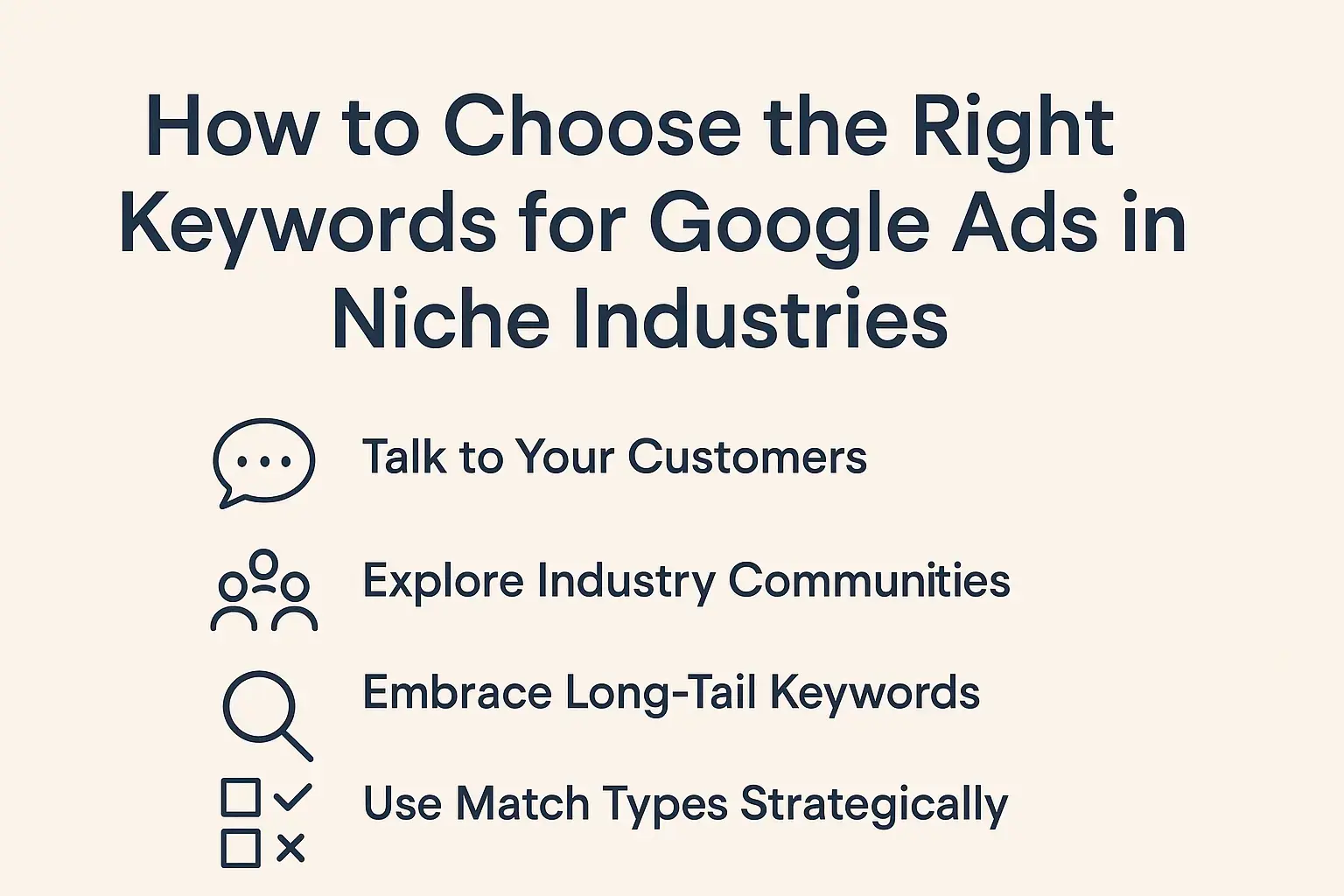Targeted Google Ads Keywords for Niche Success
In niche markets, you quickly learn that one size never fits all. I remember working with a boutique tea company that wanted to advertise “green tea.” Sure, it’s a popular term—but it also attracts bargain hunters, casual drinkers, and bargain hunters looking for “green tea benefits.” What really moved the needle for them was “single-origin matcha ceremonial grade”—a phrase their true fans were already typing into forums and review sites. Once we focused on those ultra-specific searches, clicks turned into orders almost overnight.
Talk to Your Customers
ask your customers how they search. Next time you chat with someone who’s already bought from you, casually slip in, “What did you type into Google when you were looking for us?” You’ll be amazed at the detail they share. Maybe they’ll mention “stainless-steel espresso tamper” instead of “coffee tools” or “vegan leather camera strap” rather than “camera strap.” Keep a running list of these real-world phrases—they’re the raw ingredients for a keyword campaign that resonates.
Explore Industry Communities
Once you've collected these valuable insights, explore the online spaces where your target audience congregates. Reddit threads, Facebook groups, industry blogs, and even YouTube comment sections can reveal jargon you won’t find in any automated tool. When I helped a custom bike parts maker, I discovered their best customers were using “CNC-machined titanium derailleur hanger” in Facebook marketplace posts—and that exact phrase drove our highest-value clicks.
Embrace Long-Tail Keywords
Don’t be afraid of long-tail keywords. Sure, they might attract only a handful of searches each month, but those searches come from people who know exactly what they want—and who are ready to buy. A search for “handcrafted birch wood cheeseboard with juice groove” might only get 10–15 monthly searches, but the people clicking are practically halfway through checkout.
Use Match Types Strategically
Now let’s talk about match types without jargon overload. Start with exact match when you’re testing a phrase: it shows your ad only when someone types it precisely. Move to phrase match when you want a little wiggle room—perfect for capturing small variations like “best handcrafted birch wood cheeseboard.” If you still need more volume, broad match modifier will let you catch other relevant searches, as long as your core terms are present. It’s like fishing with different nets: an exact match is a tight, hand-woven net for specific fish, while broad modifiers let in a bit more water without losing the fish you want.
Build a Strong Negative Keyword List
One thing you can’t skip is a solid negative keyword list. Even niche terms attract unwanted guests. If you sell premium leather journals, you don’t want clicks from people searching for “free printable journal pages.” Carve out time every week to scan your search terms report and banish any irrelevant words—whether it’s “free,” “template,” or even “pdf.” Your budget will stretch further, sending you more qualified traffic instead of noise.
Wrapping It Up
Lastly, treat your keyword strategy as a living document. Tweak your bids, swap in new terms, pause underperformers, and celebrate the winners. Over time, you’ll build a personalized list that feels less like a marketing checklist and more like a conversation you’re having with your ideal customer. In niche industries, that human touch—knowing exactly how your audience speaks—is your greatest advantage. Give it the attention it deserves, and you’ll see your Google Ads campaigns deliver not just clicks, but real business growth.







